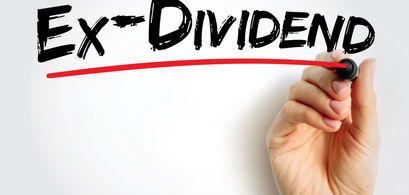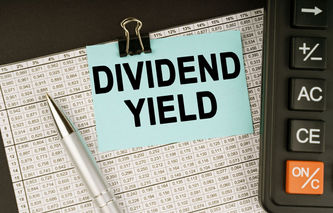Definition
The term ex-dividend date refers to the day after which a security no longer carries with it the right to a company's recently declared dividend payment. An investor that acquires a security on or after the ex-dividend date is not entitled to the payment of that dividend.
Explanation
Investors need to be aware of four important dates, especially if they are buying or holding securities that provide high dividend yields. The ex-dividend date, also known as the ex-date, is the second date in the sequence below:
Declaration Date: this is the day a company formally announces the payment of a dividend; typically referencing the record date as part of the announcement.
Ex-Dividend Date: calculated as two business days prior to the record date. An investor that acquires a security on or after this day is not entitled to the declared dividend.
Record Date: to be entitled to the payment of a dividend, the holder of a security must be listed as the official owner on this day.
Payable Date: typically referenced as part of the announcement, this is the day on which payment is made to the owner of record.
When a stock reaches its ex-dividend date, the stock symbol is usually accompanied by an "x." In theory, the price of a stock will move up as the ex-dividend date approaches and fall sharply on that day. That's because the seller of the stock remains entitled to the next dividend payment even after the sale, not the purchaser.
Example
On October 1st Company A declares a dividend payable to shareholders on November 12th. As part of that announcement, Company A states that shareholders of record on October 14th are entitled to the dividend.
Since October 14th falls on a Thursday, the ex-dividend date would be on Tuesday, October 12th; which is two business days prior to the record date. Investors purchasing shares of Company A's stock on Monday, October 11th would be entitled to the payment of the dividend, while anyone purchasing shares on October 12th would not be eligible to receive a payment.




